What do you think about when you hear the term “digital nomad”?
The term instantly conveys something super unique, doesn't it? Traveling the world without a care in the world. Seeing new places every week and hopping on a plane, train, or automobile to the next exotic destination.
My wife and I are digital nomads. After retiring from full-time work at 35, my wife and I travel the country full-time in our Airstream RV and stay connected through this incredible thing we like to call the “cell network”.
Or WiFi when we're out of Verizon cell coverage.
When I say “nomads,” I mean it. Though we have a stationary house too, the Airstream is what we’ve lived in nearly full-time for the past three years. And during that time, we’ve run our entire lives out of that 200 square foot silver bullet.
Everything we do – cooking, eating, writing, researching, financial management…and, just living – it’s what makes us digital nomads and, frankly, it is also what makes this lifestyle unique, exciting and fulfilling every single day.
In this post, I’m going to outline exactly how we run our financial lives from the road.
How we manage finances as full-time digital nomads
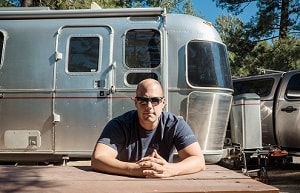
At a very high level, we rely heavily on technology.
Being a digital nomad is exciting, but it’s also not exactly a traditional life. Let's talk about managing our financial lives while on the road.
We don't have the luxury of using a local bank because of our definition of “local” changes every week. We no longer walk into banks anymore. For us, things are different.
Living a life of full-time travel, we often have no idea where we'll be next week or even next month. Will we have access to the internet or a decent phone connection? Who knows!
This is where financial automation is key.
Given our less than stable connectivity, all our bills must be on Autopay (we will talk more about automation below). The last thing we want to do is be hit with a late fee because we were out hiking a national park.
Having everything on autopay means we never have to worry about a payment being late.
We do have to worry about having enough money in our account to pay the bills, however. So, we track all our credit card bills via Personal Capital (whenever we have service) and make sure to keep more than enough cash in our checking account to cover them.
Sure, we could be earning more interest by stashing that money in our Ally savings account, but the peace of mind of knowing we are covered, regardless of where we might be, is priceless.
A huge positive to living as a digital nomad is that everything and I mean EVERYTHING, we spend money on can be charged to a credit card. Healthcare, rent (campground fees), utilities (propane), and all our living expenses we charge.
This way, it's easy to pay using autopay and we don't have to worry about missing a payment – but even better, we get points for everything too! Getting travel rewards for our health care costs, we're in!
BTW, we use Liberty HealthShare as our health provider. It’s not traditional health insurance and it won’t be right for everyone, but it is an easy way to cover unexpected health costs wherever we happen to be in the country (or world).
As nomads, we have the luxury to grow and shrink our lifestyle with market conditions because this life can nearly be as cheap as we want.
But, the basic rules of money still apply to us nomads.
For example, we still need to budget. Traveling to new places makes us want to spend more money on new restaurants, breweries, activities, etc. We can't go overboard! Also, some expenses that could be “set” when living in a stationary home, such as grocery spending, can fluctuate greatly based on where we are located.
Thus, our budget needs to have enough wiggle room to account for that, and it needs to be realistic enough to keep us happy and healthy on the road.
Now that you have a broad sense of the approach, let's get into specifics.
Here is how we manage our finances as travelers:
Digital Nomad Finances: Select the right domicile
Arguably, the most important element in full-time travel as digital nomads is your domicile. A domicile is the location of your permanent home. As far as most governments are concerned, you need to have a physical address to call home even if you're a digital nomad.
My wife and I use our home base in southern Arizona as our domicile. We use this address on all legal documents and consider that our permanent “address” – with one major exception. We also use my in-law’s home as our mailing address for important documents that need immediate attention. My in-laws will forward mail for us anywhere in the country – for free!
Don’t have in-laws who will accept this responsibility? No worries.
There are services that full-time travelers can use for their physical address if they don’t have a home base or a friend/family member to collect and forward mail. These services (sometimes called “mail forwarding services”), which are established in several different states, will assign you a physical mailing address to be used as your legal mailing address.
You're not living there, of course. It's just where your mail is sent and collected.
Then, you can instruct them to forward your mail straight to you wherever you happen to be in the world. International shipping fees may apply, of course.
How does this relate to our finances? Simple: Taxes and bureaucracy. You'll pay all income taxes and be subject to rules and regulations based on your domicile, and some states are more friendly to digital nomads than others.
In our experience, the three most popular states to domicile in are South Dakota, Texas and Florida due to their tax regulations and relaxed bureaucracy and laws.
South Dakota (just like Texas and Florida), for example, has no state income tax. South Dakota also has no inheritance tax. No personal property tax. Low-cost vehicle registrations and no vehicle inspections.
Yup, South Dakota wants digital nomads to domicile in their state.
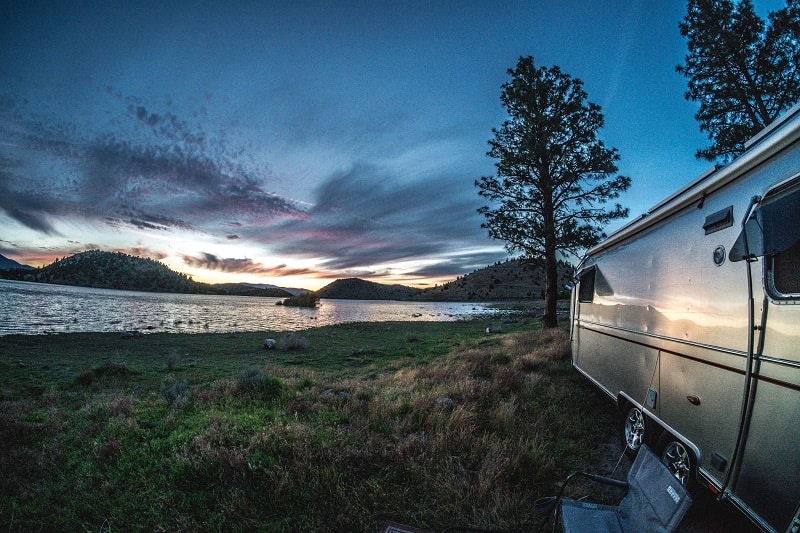
Access to healthcare and other specific requirements will also play into choosing the right state, but selecting the lowest-cost domicile is an important step in being a digital nomad who resides inside the United States.
If we didn't use a family member as our domicile, we'd probably choose South Dakota as our state of residence (domicile).
What if you travel internationally? We haven't yet traveled outside of the United States, but understand that if you're a U.S. citizen or “resident alien,” U.S.-based tax laws will generally apply even if you aren't living in the United States the entire year.
For specifics regarding taxes and international travel, check out the IRS's “Taxpayers Living Abroad” page.
Note that there are traveling “hacks” that can reduce your tax obligation, but make sure that you completely understand the ins and outs of how it all works before getting yourself into hot water!
Digital Nomad Finances: Go digital
We rely on the digital world for practically everything we do, including financial management. We use online banking nearly 100% of the time through Chase and USAA Banking, and we also rely on Personal Capital to track cash flow and how we're doing.
Our banks are online. Credit cards are online. Stock portfolios…you guessed it, all online. We can buy, sell, and transfer money 100% online through a few clicks of the mouse.
If you are concerned about personal security with online banking, I completely understand and we can never be too careful. As such, we are very cautious about accessing personal information on the road using public WIFI networks, for example.
And, we always make sure that we never click on any links contained in emails unless we are 100% sure that they are legit – especially from banks! Be sure to check the “From” line of the email and take a look at the full web address of any links in the email. Though the links look real, scam emails can look and feel like the real thing. But, they aren’t!
According to the Pew Research Center, 51% of U.S. adults bank online. As this not-so-new way of managing money becomes more widespread, so will the security that surrounds online banking. Security breaches cost banks millions of dollars every year, and it's in their best interest, as well as your own, to keep your information as secure as possible.
Digital Nomad Finances: Automation is key
Along with bringing everything online, we use the convenience of our digital world to automate-the-heck out of almost everything that we do.
We do this because we're not always sure when we'll be completely disconnected from the digital world during our travels. If we're away for days at a time without a solid connection to the Internet, we want to make sure our bills are being paid in our absence.
I don't think we've ever been late on a credit card bill, and automation is a huge part of why we're so darn consistent wherever we happen to be.
Of course, automation isn't just a technique for digital nomads. Financial automation can help nearly all of us in every walk of life.
Most companies offer automatic 401k investing opportunities for their employees. Taxable brokerage accounts are another method that many people use, including my wife and me. And, most banks and/or investment companies offer the ability to automatically transfer money from your bank account into your investment portfolio.
And speaking of automated money transfers, savings, and money market accounts is another excellent option for financial automation. Savings accounts help to separate your “spendable” cash from cash that should not be spent, at least as easily.
All money in your savings account is still liquid. You can get to it at any time. But, it also typically requires an additional step or two depending on the bank. Spend from your checking account, but save directly into your savings account (above and beyond your 401k and/or IRA retirement accounts, of course).
Consider using this as part of your overall emergency fund strategy, too. More on emergency funds later in this article.
Digital Nomad Finances: Maximize credit card points
We love credit cards.
As travelers, credit cards are practically made for us. So many cards offer “cash back” bonuses and traveling perks, as well as automatic insurance and warranties on products and services paid for using their card.
For example, some credit cards offer “baggage delay” insurance, allowing replacement clothing purchases up to a certain amount per day that your luggage is “lost” somewhere in the airport system. Others offer reimbursements for burglary or theft at hotels, or damaged possessions in travel, or even collision rental car insurance.
And most cards offer some sort of cashback or point system that can be used for travel. My wife and I have flown many times to Puerto Vallarta, Mexico for “free” using the points accumulated through spending on one of our Southwest Airlines cards.
If you're an international traveler, several cards (like Capital One's Venture Rewards and Chase's Sapphire Preferred cards) offer no foreign transaction fees, which is critical to maximizing our dollars spent while out of the country.
In other words, there are a lot of perks from credit cards made specifically for digital nomads.
However, traveling with credit cards isn't all roses, either. When on the move constantly, credit card fraud is harder to automatically detect. We keep an eye on all our charges through Personal Capital to prevent problems. If traveling internationally, your bank may shut everything down and make you come back to the US to access your money even with a phone call beforehand to let them know where you will be.
Some banks might be better at this than others. But, we've personally seen international travelers return to the U.S. just to free up the funds in their bank account due to “false” fraud protection. It can (and does) happen.
Though using credit cards (especially internationally) does have drawbacks, we’ve found that the travel-related perks more than make up for any limitations of using plastic everywhere we go.
Digital Nomad Finances: Build (and maintain) an emergency fund
Setting up an emergency fund is especially important when traveling as we do not have our support network to fall back on. We may need to shell out quite a bit of money for a vehicle, a medical emergency or something else, and in those times, we can't afford to worry about where the money is going to come from.
For example, in 2017 we had a major tire blowout. At 70 MPH through the nothingness of western Utah, our left rear tire exploded. The heat built up and the tire's sidewall gave way. We dove off to the side of the road and waited for rescue. Over the next week, we replaced all four tires along with a new diesel fuel tank for our truck (because the explosion damaged it, too).
Our emergency fund made paying for that little unexpected adventure purely an inconvenience, not a stressful financial ordeal. That's what emergency funds are made for, after all.
Live as a digital nomad long enough and you'll need money socked away for an emergency. It's just all a part of this lifestyle. It’s not a matter of if. It’s a matter of when.
Digital Nomad Finances: Find cheaper camping options
Believe it or not, not all campgrounds are created equal, and they don’t have a consistent nightly price. If you’re an RV digital nomad, camping fees will be among the largest of your monthly expenses, and choosing less expensive camping options can significantly improve your financial picture.
A few things to keep in mind:
- Many campgrounds offer weekly or monthly rates at a steep discount over the nightly rate; whenever possible, stay longer at each campground to take advantage of these discounts.
- Especially in the western half of the United States, free public land (widely known in the RVing community as “BLM” land) is available for RVers to set up camp. For free. There are no utility hookups (like power, water, and sewer), but it’s 100% free rent. Many BLM areas enforce a 14-day limit for campers before they need to move on.
- If you can confidently back-up into campsites, choose those; many campgrounds offer “premium” pull-thru sites for an additional cost. However, back-in sites are typically the cheaper option and they are a good way to keep camping fees to a minimum.
That's it!
As full-time digital nomads, we handle our finances using “the system” as much as we can. We rely on online banking, employ automation and use credit cards that offer points and travel perks, and it's always nice using debit cards without ATM fees so we can withdraw cash anywhere in the country without paying a fee.
And, we choose less expensive camping options whenever we can and stay in one place for a longer period, which helps reduce our travel costs significantly.
These financial tricks have streamlined our lifestyle, and they are all a part of this wonderful lifestyle.
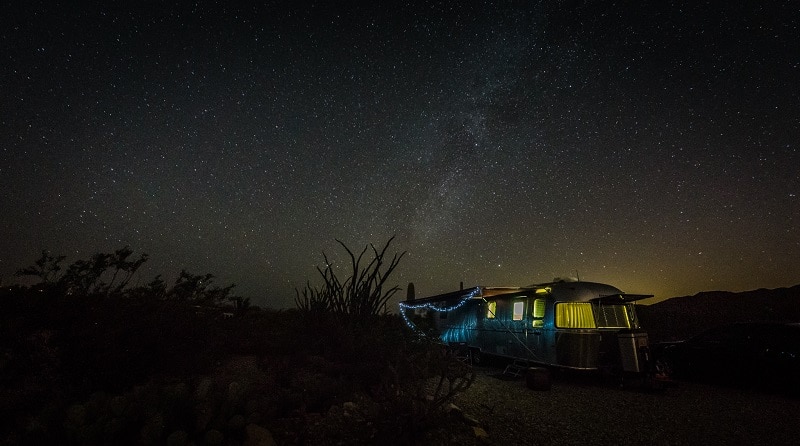
—
I'm Steve and I write about mastering the mind games of life at SteveAdcock.us. My wife Courtney and I also maintain a YouTube channel at A Streamin' Life and we just released a course about how to plan an epic RV adventure, including video tutorials on Google Maps and all kinds of free websites that can be used to research camping options. Use promocode WALLETHACKS for 20% off the price of the course.
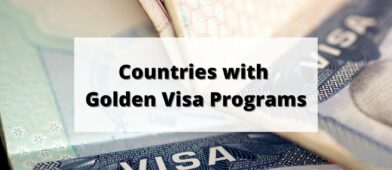

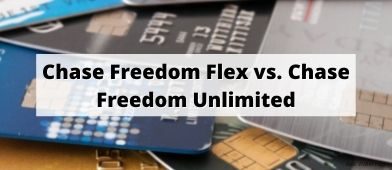
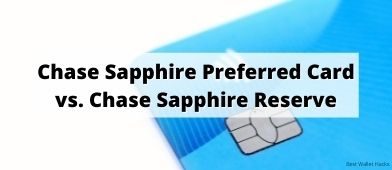
Leave a Comment: